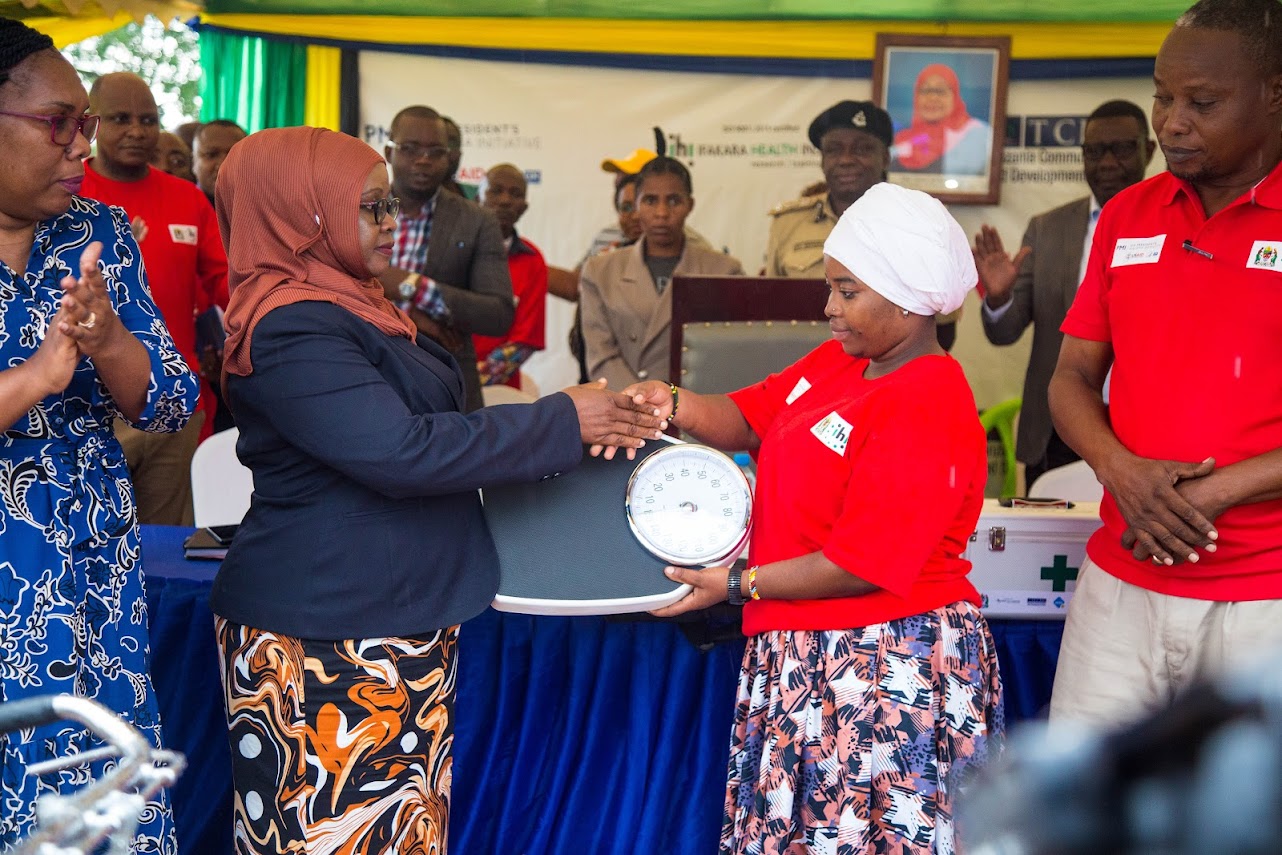
SUPPORT: Shinda Malaria project hands over malaria case management tools in Katavi

On Wednesday, March 1, 2023, Shinda Malaria project handed over nearly $20,300 (TZS 47.5 million) worth of working tools to 21 Community-Owned Resource Personnel (CORPs) from Nsimbo and Tanganyika district councils that will support malaria case management at community level.
The event took place at Vikonge Village in Tanganyika District, Katavi Region and was attended by representatives from the President's Office, Regional Administration and Local Government Tanzania (PO-RALG), Ministry of Health (MoH), and Katavi regional officials; and officials from the USAID Tanzania and the Shinda Malaria project. Mwanamvua Mindoro, Katavi Regional Commissioner graced the event.
Shinda Malaria is a five-year program funded by the American people through the U.S. President’s Malaria Initiative (PMI) and is implemented by Ifakara Health Institute as a prime recepient and three other partners.
Shinda Malaria project team, in collaboration with the National Malaria Control Program (NMCP) and council health management teams, facilitated the engagement and training of 36 CORPs from the villages identified for implementation of iCCM in Nsimbo and Tanganyika districts.
In 2020, the NMCP supplied 15 sets of tools to 15 villages – together with support from the Shinda Malaria project, 21 villages in Tanganyika and 15 in Nsimbo districts will manage to implement iCCM services, reaching a largely isolated community. Working tools handed over on Wednesday supplement those which were previously supplied by NMCP to 15 CORPs.
During her remarks, the Katavi Regional Commissioner, Mrs. Mindoro, acknowledged the contribution of the US government through the Shinda Malaria project towards malaria elimination in the region.
She expressed her appreciation for the government of Tanzania’s generosity to the American people for their continued support of organizations that implement malaria programs in Tanzania.
In his remarks, the Chief of Party for Shinda Malaria project, Dr. Dunstan Bishanga expressed his gratitude to the Katavi Regional Commissioner for her continued support towards the Shinda Malaria project.
“The project outreach and integrated community case management services will contribute to reducing malaria burden as many communities in the Katavi region have limited access to health facilities due to the proximity existed between villages and the facilities.”
USAID Social Behavior Change Lead and Project Management Specialist Lulu Msangi emphasized how the tools will be useful in reaching vulnerable communities, particularly pregnant women and children under the age of five.
The tools handed over to the CORPs by the Regional Commissioner included 21 bicycles, 21 back-packs, 21 clinical thermometers, 21 patient mechanical weighing scales, 21 toolkit boxes, and a total of 60 smartphones, of which 36 will be handed to the CORPs and the other 24 phones to be used by CORPs supervisors located nearby health facilities.
“PMI recognizes the contribution of CORPs in the fight against malaria at community level. We believe through this support, they will be able to complement facility level support services, contribute to reducing malaria burden and move towards the long-term goal of malaria elimination in the Katavi region and Tanzania at large.”
Community-based malaria case management is a nationally recommended strategy to the CORPs to reach underserved communities with malaria services such as malaria testing, treatment, and referral services to the nearest health facilities.
